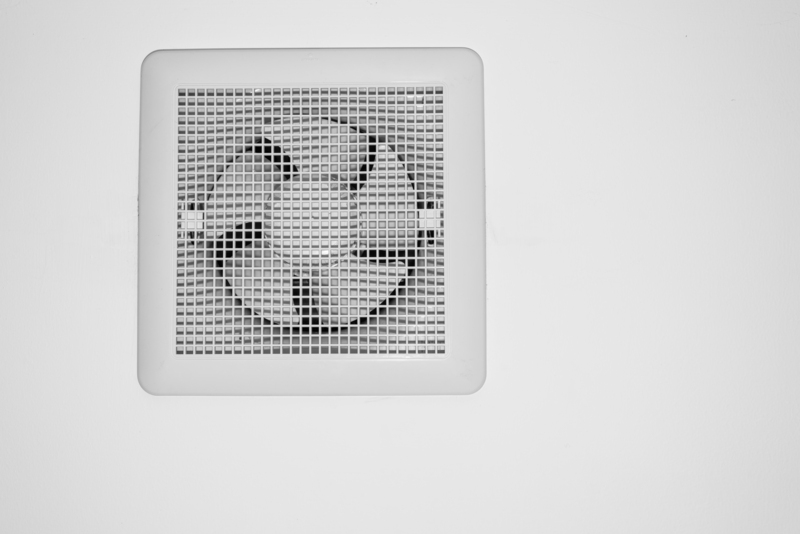Elevate Your Workspace with Improved Air Quality
Posted on 01/07/2025
Elevate Your Workspace with Improved Air Quality
In today's fast-paced professional landscape, creating a productive and healthy environment is more crucial than ever. Among the many aspects of workplace wellness, one impactful yet frequently overlooked factor stands out--air quality at work. Recent research shows that employees spend almost one-third of their lives indoors, frequently in office settings. Therefore, understanding how to enhance air quality in your workspace can lead not only to improved health but also higher productivity, mental clarity, and job satisfaction.

Why Is Workspace Air Quality So Important?
Indoor air quality directly affects well-being, concentration, comfort, and productivity. Pollutants such as dust, volatile organic compounds (VOCs), mold spores, and inadequate ventilation can significantly compromise both health and efficiency. According to the Environmental Protection Agency (EPA), poor indoor air quality can cause headaches, fatigue, irritation of eyes, nose, and throat, and even long-term respiratory issues.
- Productivity: Studies indicate a direct link between cleaner workspace air and increased cognitive function.
- Health: Reducing contaminants decreases sick days and promotes overall well-being.
- Comfort: Enhanced air circulation can help regulate indoor temperatures and humidity levels.
Key Pollutants Affecting Office Air Quality
Understanding the typical pollutants that threaten workplace air quality is pivotal. Some of the most common contaminants include:
- Dust and Allergens: Particles from carpets, furniture, and HVAC systems can accumulate rapidly.
- Volatile Organic Compounds (VOCs): Emitted by paints, printers, cleaning agents, and office equipment.
- Mold and Mildew: Caused by high humidity or unattended spills, contributing to breathing issues.
- Carbon Dioxide (CO2): High levels can impair concentration and cause drowsiness.
- Bacteria & Viruses: Especially concerning in shared workspaces.
Effective Strategies to Elevate Office Air Quality
1. Invest in High-Quality Air Purifiers
One of the most efficient ways to improve workspace air quality is by using modern air purifiers. These devices trap and neutralize pollutants, allergens, and microbes, leaving the air cleaner and safer. When choosing an air purifier:
- Opt for HEPA filters capable of removing at least 99.97% of airborne particles.
- Consider UV-C light features for extra protection against viruses and bacteria.
- Place units strategically in high-traffic and communal areas for maximum coverage.
2. Maximize Ventilation in the Workplace
Proper ventilation is essential for maintaining superior air quality. A continuous flow of fresh air dilutes indoor pollutants and regulates humidity. Here are ways to boost ventilation:
- Open windows whenever possible to allow natural air exchange.
- Maintain and regularly clean HVAC systems for optimal performance.
- Use exhaust fans in restrooms and kitchenettes to prevent the buildup of odors and moisture.
3. Incorporate Biophilic Design and Indoor Plants
Adopting a biophilic design philosophy--incorporating natural elements into your workspace--not only improves aesthetics but also boosts air quality. Certain indoor plants act as natural air filters by absorbing toxins and releasing oxygen. Recommended plants for an office environment include:
- Snake Plant: Known for removing formaldehyde and other toxins.
- Spider Plant: Easy to care for and efficient at removing carbon monoxide.
- Peace Lily: Reduces mold spores and VOCs.
- Bamboo Palm: Filters benzene and trichloroethylene.
*Tip:* Choose low-maintenance plants and position them in well-lit areas for maximum benefit.
4. Regular Maintenance and Cleaning Protocols
Dust buildup, dirty vents, and neglected carpets are breeding grounds for contaminants. To elevate your workspace with better air quality:
- Establish a frequent and thorough cleaning schedule.
- Prioritize eco-friendly, low-VOC cleaning products
- Routinely replace HVAC filters and service the equipment.
- Ensure carpets and upholstery are vacuumed with HEPA filters and cleaned regularly.
5. Manage Humidity Levels
Maintaining optimal humidity--typically between 30% and 50%--helps curb the growth of mold, bacteria, and dust mites. Consider:
- Installing dehumidifiers in areas prone to dampness.
- Using humidifiers during dry seasons to avoid irritation and static electricity.
- Regularly checking for leaks or standing water that could foster mold growth.
The Impact of Improved Air Quality on Employee Well-being and Productivity
The benefits of upgrading your office air quality go beyond health. Multiple studies reveal that employees exposed to cleaner indoor air demonstrate higher cognitive performance, reduced absenteeism, and greater job satisfaction.
- Enhanced Focus: Clean air leads to improved attention span and fewer mistakes.
- Fewer Sick Days: Less exposure to airborne pathogens means a healthier staff.
- Greater Satisfaction: Workers in healthier environments feel valued and engaged.
In fact, a Harvard School of Public Health study found that doubling ventilation rates in buildings led to a 100% increase in cognitive function test scores among participants.
Emerging Technologies for Cleaner Office Air
As workplace health trends advance, so do the technological solutions for better indoor air quality. Here are some recent innovations:
- Smart Air Quality Monitors: These devices continuously track air quality and provide real-time feedback to guide improvements.
- IoT-Enabled HVAC Systems: Automated systems that adjust filtration and ventilation based on occupancy and detected air contaminants.
- Touchless Entry and Cleaning Devices: Reducing surface germs and contributing indirectly to improved air cleanliness.
- Personal Desk Air Purifiers: Compact solutions for individual workstations, especially in shared environments.
Common Mistakes to Avoid
While striving to enhance your workspace air quality, avoid these pitfalls:
- Neglecting Regular Maintenance: Filters and systems that are not regularly cleaned or replaced can do more harm than good.
- Over-reliance on Artificial Fragrances: Air fresheners and scent diffusers may mask odors but often release additional VOCs.
- Ignoring Humidity: Extremely low or high humidity can create an uncomfortable and unhealthy environment.
Actionable Steps to Begin Today
Ready to elevate your office atmosphere? Here are simple actions you can implement immediately:
- Open windows during appropriate weather for fresh air exchange.
- Declutter surfaces and keep desks clean to minimize dust accumulation.
- Encourage employees to report leaks, water damage, or persistent odors.
- Choose eco-friendly office supplies that emit fewer pollutants.
- Arrange flexible seating near plants or windows for natural light and air flow.

Frequently Asked Questions about Workspace Air Quality
Q: How often should office air filters be replaced?
It's recommended to check and replace HVAC filters every 2-3 months, or more frequently in high-traffic offices or areas with pets.
Q: Are all indoor plants effective air purifiers?
While many plants offer some degree of air filtration, certain species are particularly efficient, such as the peace lily, snake plant, and areca palm.
Q: Can poor air quality impact mental health in the office?
Yes. Poor air quality is linked to increased stress, reduced cognitive function, and even mood disorders. Cleaner office air supports mental clarity and emotional well-being.
Conclusion: Take Charge of Your Office Air Quality
In summary, prioritizing better workplace air quality is a vital investment for any business or home office setup. Simple yet strategic steps--from the addition of air-purifying plants and modern technology to proper maintenance and mindful design--can transform your workspace.
Elevate your workspace with improved air quality not only for enhanced physical health but for lasting professional success and satisfaction. Start with small changes today and reap the significant rewards of a cleaner, healthier, and more inspiring work environment.
Remember: Healthy air supports not just better work, but better living.




